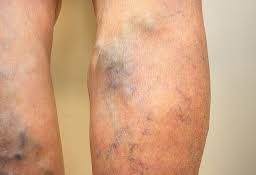
Hearing Loss and tinnitus: Causes, Symptoms, and Management Guide
Ever noticed a ringing or buzzing in your ears? You’re not alone. Many of us have experienced it, and it’s often called tinnitus. It’s like having your own personal soundtrack, but not the pleasant kind. In this discussion, we’re breaking down the basics of hearing issues and that pesky ringing, making it easy for anyone to grasp. Whether it’s loud noises or the natural aging process, we’ll explore the reasons behind these ear troubles and how to handle them. So, let’s unravel the mystery of why our ears sometimes play tricks on us!

Tinnitus is the perception of sound when no external sound source is present. It is often described as a ringing, buzzing, humming, or hissing noise. This condition can be temporary or chronic and may affect one or both ears. While the idea that ringing ears signal someone speaking ill of you lacks scientific support, it highlights the fascinating intersection between cultural beliefs, psychological factors, and physiological experiences. In this post, we’ll explore the various aspects of tinnitus, including its causes, symptoms, potential treatments, and how to manage its impact on daily life.
A Historical Perspective
Throughout history, many cultures have associated ringing ears with supernatural or mystical interpretations. From superstitions about the left ear receiving negative gossip to the right ear hearing positive remarks, these beliefs have persisted, shaping perceptions of tinnitus in various societies. Contrary to popular belief, the sounds are not signals from external entities but are generated within the auditory system. While folklore suggests a direct link between ringing ears and external communication, the reality is that tinnitus is a subjective experience. The brain’s interpretation of signals from the auditory system can lead to the perception of various sounds, and these interpretations are not influenced by external sources or gossip.
Causes of Tinnitus:
Understanding the underlying causes of tinnitus is crucial for effective management.
1. Exposure to Loud Noise: Prolonged exposure to loud noises, such as concerts, machinery, or firearms, can damage the delicate structures of the inner ear and lead to tinnitus.
2. Age-Related Hearing Loss: As we age, the cells in our inner ear can deteriorate, resulting in hearing loss and tinnitus.
3. Earwax Blockage: Accumulation of earwax can cause hearing difficulties and tinnitus.
4. Medical Conditions: Tinnitus can be a symptom of various medical conditions, including Meniere’s disease, otosclerosis, and temporomandibular joint (TMJ) disorders.
5. Medications: Some medications, such as certain antibiotics, antidepressants, and nonsteroidal anti-inflammatory drugs (NSAIDs), can cause or worsen tinnitus.
Symptoms of Tinnitus:
Tinnitus itself is a symptom, but it can be accompanied by other sensations, such as hearing loss, dizziness, or a feeling of fullness in the ears.
Treatment and Management:
Living with tinnitus can be challenging, but there are various coping strategies to help individuals manage the condition.
1. Identifying and treating the underlying cause of tinnitus, such as hearing loss or a medical condition, can help alleviate symptoms.
2. For individuals with hearing loss, hearing aids can improve overall auditory perception and reduce the prominence of tinnitus.
3. Background noise, such as white noise or nature sounds, can help mask the ringing and make it less noticeable.
4. Tinnitus can be emotionally distressing. Counseling and CBT techniques can provide coping strategies and reduce the impact of tinnitus on mental well-being.
5. For those seeking medical intervention, a range of treatments may be available, depending on the underlying cause of tinnitus. Persistent or bothersome tinnitus should prompt individuals to seek professional medical evaluation. A healthcare provider can help determine the underlying cause of the tinnitus and recommend appropriate treatments or management strategies. In some cases, medications may be prescribed to manage the symptoms of tinnitus, especially if associated with anxiety or depression.
Preventative Measures:
Prevention is often the best medicine. Exploring ways to protect your ears from loud noises, maintaining overall ear health, and staying mindful of medications’ potential side effects can help reduce the risk of developing tinnitus.
In the vast concert hall of our daily lives, silence is a precious symphony. However, for many individuals, this tranquility is disrupted by a persistent and often perplexing companion – the ringing in the ears, commonly known as tinnitus. While tinnitus can be a challenging condition, understanding its causes and available treatments is essential for managing its impact on daily life. It is not a consequence of ill will or negative thoughts directed at an individual. If you or someone you know is experiencing persistent ringing in the ears, seeking guidance from a healthcare professional is the first step towards finding effective solutions and regaining a sense of auditory well-being.
Disclaimer: This blog post is intended solely for informational purposes and does not constitute medical advice. Always consult with a qualified healthcare professional for personalized guidance regarding your specific health situation.
















